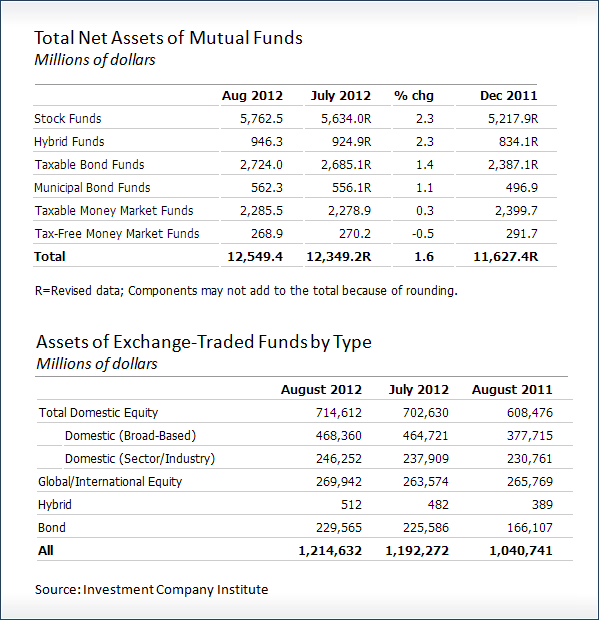3 Reasons Traditional Index Mutual Funds Are Better Than ETFs Amateur Asset Allocator
Post on: 31 Март, 2015 No Comment

Last week I wrote about why I chose to simplify my retirement portfolio just a little bit. In the comments, Tom asked
Just curious, any particular reason(s) why you prefer mutual funds to ETFs?
I’ve setup a Vanguard brokerage account and am contemplating selling all my Roth IRA mutual funds and putting them into the same ETFs, so I’m very interested to know why you prefer one over the other.
For starters, I should say that for its mostly just personal preference. I started investing in traditional index mutual funds early on and Ive continued to do so ever since. It used to be that ETFs were less expensive to own than open-ended index funds, but with Vanguard lowering the minimums on their Admiral shares to just $10,000 thats no longer the case for most asset classes. That said, there are a few admittedly minor quirky things that make me slightly prefer traditional open-ended index funds over exchange traded funds.
3 Reasons I Prefer Index Mutual Funds To ETFs
- Rebalancing is easier with mutual funds — Rebalancing with traditional mutual funds is significantly easier because of fractional ownership. Since mutual funds are always bought and sold at net asset value (NAV) and not based on supply and demand for the fund shares themselves, you can own own fractions of a share. Hence, a mutual funds NAV is more or less irrelevant. Contrast that with ETFs, which are sold on an exchange. You can buy 200 shares of VTI or 201 shares of VTI, but you cant buy 200.256 shares of VTI. Is this a huge difference? No, but it does add a few minutes of work to rebalance time. Plus, if youre OCD like me, its really annoying when things arent exact.
- ETFs cost money to buy and sell — Yes, Im aware plenty of brokerages now offer free ETF trades, but those arent the only transaction costs Im referring to. You also have to pay a bid/ask spread, which basically amounts to a commission for the stock exchange on which the trade is made and is baked into the market price. Theres no avoiding it. Yes, index mutual funds have to deal with these same bid/ask spread issues on the back end when they invest your money in the funds underlying securities, but they also have a few tools to help mitigate these costs somewhat. Overall, this is a very, very tiny advantage for index mutual funds: very small, but still non-zero.
- Automatic monthly investments are much easier with index mutual funds This is one advantage I definitely take for granted. I have monthly automatic investments set up for at least 9 different mutual funds in various accounts. Its easy, its automatic, and I know Im always getting in at the NAV price no matter which day the purchase goes through. With ETFs, this unfortunately isnt universally supported. Some brokerages do offer this functionality, however, you arent always guaranteed to get the best price because of the way ETFs are traded on the exchange. Do you trust your broker? No, I mean do you really trust your broker? Neither do I. I wouldnt count on always getting the best price if you try to do this with ETFs. Again, very slight advantage to open-ended index funds.
But ETFs Do Have Some Advantages
I dont mean to knock ETFs. They do have some pretty significant advantages for some investors. For example,
- ETFs sometimes have slightly lower expense ratios than their mutual fund equivalents (not always, but sometimes).
- Since they trade on an exchange, all the traditional stock trading tricks such as stop-loss orders apply.
- You can buy/sell options on ETF shares.
- You can trade throughout the day. I dont see this as an advantage at all, but some investors might.
- Most importantly, some asset classes are only economically available in ETF form. Commodities are good example of this. There really arent any good, inexpensive mutual fund options. Gold (in the form of GLD ) is another example.














